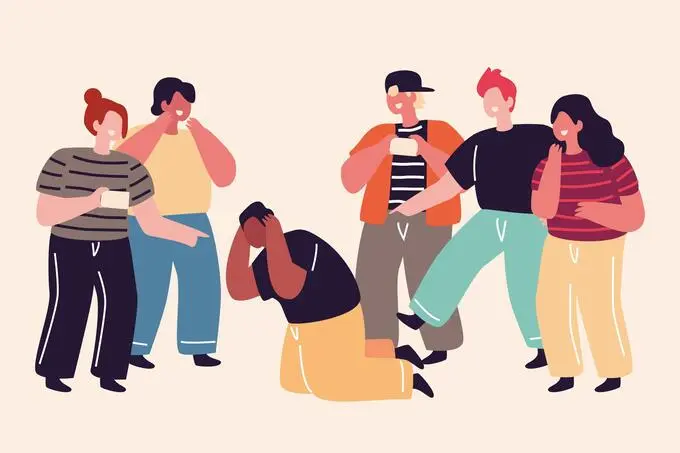Are you struggling with struggles related to borderline personality disorder (BPD)? and have a question is borderline personality disorder a disability? If so, it’s important for you to know that BPD is not only a serious mental health condition but may also qualify as a disability.
Through this blog post, we will be taking a deep dive into what makes BPD an official mental health disability – exploring its symptoms, diagnosis criteria, and treatment options available – so that better medical care can eventually work towards making this disorder more manageable for those living with it every day.
Read more to get further details.
Is Borderline Personality Disorder A Disability?
Borderline personality disorder (BPD) is a mental health condition characterized by intense emotional instability, difficulty in regulating emotions and behavior, impulsive actions, and unstable relationships.
Individuals with BPD often struggle with maintaining stable relationships due to their constant fear of abandonment and difficulty expressing their emotions in a healthy manner. They may also engage in impulsive behaviors such as reckless spending, substance abuse, or self-harm.
While BPD can significantly impact an individual’s daily life and relationships, it is important to understand that it is not a choice or character flaw. Rather, it is a complex disorder that requires appropriate medical treatment and support.
How Is BPD Diagnosed?
Diagnosing BPD can be complicated as its symptoms overlap with other mental health conditions such as depression, anxiety, and bipolar disorder. However, according to the Diagnostic and Statistical Manual of Mental Disorders (DSM-5), a person must exhibit at least five of the following symptoms to be diagnosed with BPD:
- Intense fear of abandonment
- Unstable and intense relationships
- Distorted self-image and self-identity
- Impulsive behavior in at least two areas (e.g., spending, substance abuse, sexual)
- Recurrent suicidal or self-harming behaviors
- Extreme emotional instability (e.g., frequent mood swings, difficulty controlling anger)
- Chronic feelings of emptiness
- Intense, inappropriate anger or difficulty controlling it
- Paranoia or dissociation in response to stress
Causes of BPD
The exact cause of BPD is unknown, but researchers believe that a combination of genetic and environmental factors can contribute to its development. Studies have shown that individuals with BPD often have a history of childhood trauma, such as neglect, abuse, or unstable relationships with caregivers.
Additionally, some experts suggest that certain brain structures and neurotransmitters may also play a role in the development of BPD. People with BPD have been found to have abnormalities in the areas of the brain responsible for regulating emotions and impulse control, as well as imbalances in certain neurotransmitters, such as serotonin.
Effects of BPD
BPD can have a significant impact on a person’s life, relationships, and overall well-being. People with BPD may struggle with maintaining stable relationships and often experience intense emotional highs and lows, making it challenging to regulate their emotions and behavior.
They may also engage in impulsive and self-destructive behaviors as a means of coping with overwhelming emotions or avoiding abandonment. These behaviors can lead to financial difficulties, legal problems, and strained relationships with friends and family.
Additionally, individuals with BPD may also struggle with co-occurring mental health disorders, such as depression, anxiety, or substance abuse. This makes it even more challenging to manage symptoms and can further impact their overall quality of life.
Types of BPD
BPD can manifest in different ways, and not everyone with the disorder will experience the same symptoms. There are four main subtypes of BPD, each characterized by specific traits and behaviors:
- Discouraged Borderline: This subtype is marked by feelings of worthlessness, self-doubt, and inadequacy.
- Impulsive Borderline: People with this subtype may struggle with impulsivity and engage in risky behaviors, such as substance abuse or reckless spending.
- Petulant Borderline: This type is characterized by feelings of anger, irritability, and hostility towards others.
- Self-Destructive Borderline: Individuals with this subtype may engage in self-harm and have a history of suicidal thoughts or attempts.
Treatment for BPD
BPD is a complex disorder, and there is no one-size-fits-all approach to treatment. However, some effective treatments can help individuals manage their symptoms and improve their overall quality of life. These may include:
- Dialectical Behavior Therapy (DBT): This type of therapy focuses on teaching skills for managing emotions, regulating behavior, and improving interpersonal relationships. It has been proven to be an effective treatment for BPD.
- Medications: While there is no specific medication for BPD, certain medications can help manage symptoms such as mood swings, impulsivity, and depression. These may include antidepressants, antipsychotics, and mood stabilizers.
- Support Groups: Connecting with others who have BPD can provide much-needed support and understanding. Support groups can also help individuals learn coping skills from others who have experienced similar struggles.
- Psychotherapy: Different types of psychotherapy, such as cognitive-behavioral therapy (CBT) and psychodynamic therapy, can be beneficial in treating BPD. They can help individuals understand the root causes of their behaviors and develop healthier ways of thinking and responding.
- Hospitalization: In severe cases, hospitalization may be necessary to ensure the safety of individuals with BPD who are experiencing intense emotions or engaging in self-harm behaviors.
Additional Tips for Managing BPD Symptoms
Aside from seeking professional treatment, there are also some helpful tips that individuals with BPD can incorporate into their daily lives to manage their symptoms:
Practice Mindfulness:
Mindfulness techniques, such as deep breathing and meditation, can help individuals with BPD become more aware of their thoughts and emotions. This can help them regulate their reactions to difficult situations.
Create a Routine:
Establishing a daily routine can provide structure and stability for individuals with BPD. This can include regular meal times, exercise, and self-care activities. Having a routine can also help manage impulsivity and reduce feelings of chaos.
Set Boundaries:
Learning to set boundaries and say no to things that are not beneficial or healthy can be difficult for individuals with BPD. However, setting boundaries is an important aspect of self-care and can help prevent overwhelming emotions and stress.
Engage in Hobbies:
Finding enjoyable hobbies or activities can provide a sense of purpose and fulfillment for individuals with BPD. This can also serve as a healthy outlet for emotions and stress.
Connect with Supportive People:
Building a support network of understanding and supportive friends, family members, or therapists can be incredibly beneficial for managing BPD symptoms. Having people to turn to during difficult times can provide validation and comfort.
Educate Yourself:
Taking the time to learn more about BPD and its symptoms can help individuals with the disorder better understand themselves and their experiences. This can also reduce feelings of shame and isolation.
Practice Self-Compassion:
Individuals with BPD often struggle with self-doubt, self-criticism, and low self-esteem. Practicing self-compassion involves being kind and understanding towards oneself, especially during difficult moments.
Seek Therapy:
Seeking professional therapy can be incredibly helpful for individuals with BPD. Different types of therapy, such as dialectical behavior therapy (DBT) or psychodynamic therapy, can help individuals learn coping skills and address underlying issues that contribute to their symptoms.
Consider Medication:
In some cases, medication may be prescribed to manage specific symptoms of BPD, such as depression or anxiety. It is important to work closely with a psychiatrist to determine the best medication regimen and monitor any potential side effects.
Conclusion
Many people ask is borderline personality disorder a disability? The answer is not a simple yes or no. While BPD can present challenges and impact daily functioning, it does not have to define someone’s abilities or limit their potential for success.
With proper support and treatment, individuals with BPD can learn to manage their symptoms and lead fulfilling lives. If you or someone you know is struggling with BPD, know that there is hope and help available.
FAQs
Some of the frequently asked questions by people are mentioned below:
Why is BPD considered a disability?
BPD can be considered a disability because it can significantly impact an individual’s daily functioning and ability to maintain relationships. It can also cause difficulties in maintaining employment or pursuing education.
Am I mentally disabled if I have BPD?
No, having BPD does not mean you are mentally disabled. BPD is a mental health disorder that can be managed with proper treatment and support. Individuals with BPD can still lead successful and fulfilling lives.
Is BPD considered a permanent disability?
BPD is not considered a permanent disability. With proper treatment and support, individuals with BPD can learn coping skills and manage their symptoms effectively.
Does personality disorder qualify for disability?
Yes, personality disorders, including BPD, can qualify for disability if they significantly impair an individual’s ability to function in daily life. However, each case is evaluated individually and must meet certain criteria to be considered a disability.


